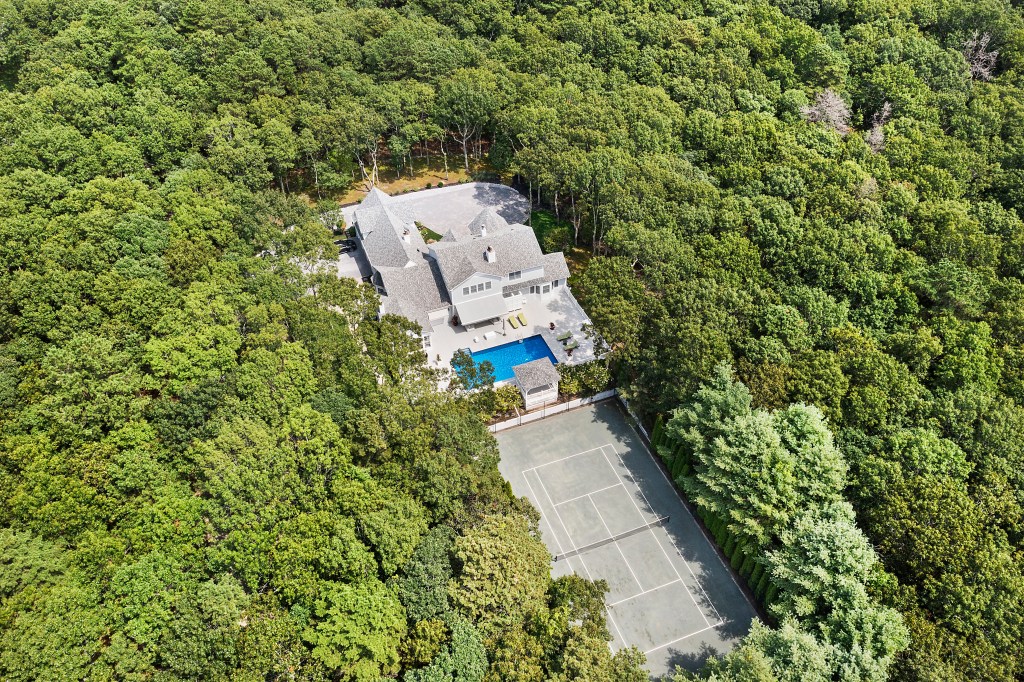Meet the Restaurant Gardener: Jeff Negron

It was a surprise that Jeff Negron became a gardener, shortly after graduating from Northeastern University with a degree in criminal justice. Negron reflects, “I was pretty lucky to have parents who were into gardening, but as a kid I wasn’t into it. Now it’s funny that that’s what I do to make a living.”
Negron’s business, The Growing Seed, is unique in that it specializes in designing and maintaining kitchen gardens. He says, “My mission is to connect small gardens to large gardens to create a community to talk about food and experiences.” His business filled a void for restaurants and individuals on the East End. “Well, I felt that there was a need to start to spread the word and the business started out simply and word of mouth was my advertising, and that led me to other restaurants. The first restaurant I worked with was Estia’s Little Kitchen,” Negron says. He now maintains gardens for Southfork Kitchen and the soon-to-open Topping Rose House, among others.
It’s not all fun and games. Negron explains that gardening is more of a science than most people think. “The tough part now is each restaurant has a different need. Timing is a key part of it, it takes time to understand what the restaurant needs and it takes communication on both ends, planning and scheduling to put together a garden for the first year. It takes one full season to work out the kinks, the pains, and the changes. The second season shows more results.”
The communication between himself and the client he’s working with is imperative. “I think it really depends on the restaurant’s thoughts for the crops. Everything the restaurant doesn’t want to grow has to be supplied from other gardens. That part takes scheduling and planning to put the two together to get the most benefits. This part is the most overlooked; it’s not a no-brainer. It takes an understanding on both sides.”
In all of Negron’s gardens he forbids pesticides. This can put a damper on the appearance of the plants, and restaurant owners are not always understanding. But the produce is healthier for you and the environment. When asked about the disadvantages of not using pesticides Negron explains, “Blemishes on the crops, visually it starts to affect the final presentation of the meal at a restaurant. Arugula is difficult to grow without pesticides because of hole damage, it doesn’t affect the taste, it’s just the appearance. Appearance is a disadvantage; it takes more labor to remove pests, or to amend the soil. It’s hard to explain to the owner of a restaurant why the produce isn’t pretty, but really its more organic and better for you.”
Negron commented, “I actually don’t have my own garden, I’m a lifetime renter. I love going to farmers markets though. If I did have the space to grow, I would grow basic herbs because they don’t need much maintenance: parsley, oregano, sage, cilantro, and basil.”
Negron tries to use his bike more than his car. “I have five jobs in Bridgehampton and that’s where I live, so I bike to those jobs because I can. Jobs in East Hampton and Amagansett, though, I can’t bike to them because I have to bring so many supplies and tools.”
“I try to be as self-sufficient as possible. I try to live sustainably with my own daily practices. In the garden I use group irrigation, rain cap systems to help collect falling rainwater. The idea of living fully sustainably is a great idea but tougher to fully execute. There are times when I have to get things done so I have to be in the car.”
You can follow jeffnegron@growingseed on Twitter or call 631-655-3031.



